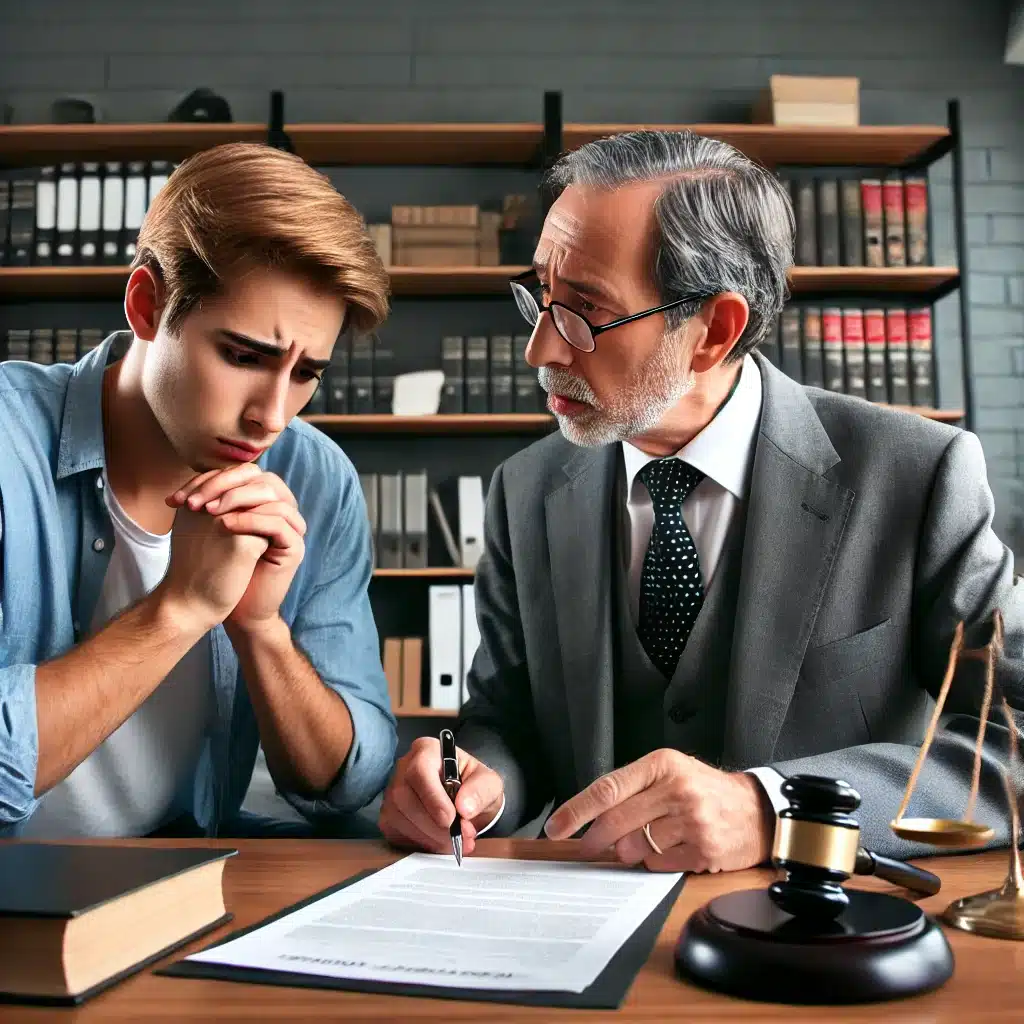Recognizing the Function of a Post-Conviction Attorney in Seeking Justice After a Criminal Sentence
In the facility landscape of post-conviction lawful procedures, the function of a post-conviction lawyer is crucial in browsing the path to justice after a criminal conviction. Past the confines of a trial, these lawyers take part in a multifaceted technique focused on discovering new proof, difficult legal mistakes, and promoting for their clients' civil liberties. The complexities of post-conviction work call for a blend of lawful acumen, investigative abilities, and strategic thinking to decipher the complexities of an instance and pursue methods that may have been overlooked or underexplored. As the search of justice extends past the boundaries of initial process, the function of a post-conviction lawyer arises as a beacon of expect those seeking to rectify oppressions and reclaim their legal rights within the legal system.
Post-Conviction Lawyer's Investigatory Job
Post-conviction legal representatives participate in meticulous investigatory work to reveal new evidence, step-by-step errors, or transgression that might possibly cause overturning a sentence. This investigative stage is important in the post-conviction process as it aims to identify any forgotten details or lawful missteps that may have affected the result of the preliminary test. Post-conviction lawyers look into situation documents, witness statements, and lawful documentation with a fine-tooth comb, looking for any kind of inconsistencies or abnormalities that could be premises for appeal.
With thorough investigation, post-conviction legal representatives aim to drop light on potential injustices that might have taken place during the initial test. They may perform interviews, speak with specialists, and review forensic evidence to construct an engaging case for their clients. By looking at every aspect of the legal process, post-conviction lawyers work relentlessly to uncover any kind of aspects that might have affected the judgment. Inevitably, their investigatory work plays a critical function in the quest of justice and the prospective reversal of wrongful sentences.
Crafting Appeals and Petitions
In the quest of justice after a conviction, knowledgeable lawyers diligently craft appeals and requests to present compelling disagreements for the reconsideration of legal decisions. Crafting appeals and petitions requires a deep understanding of the lawful system, focus to information, and critical reasoning. Post-conviction attorneys evaluate trial documents, recognize possible mistakes or infractions of rights, and establish lawful disagreements to challenge the sentence or sentence.
When crafting an allure, legal representatives concentrate on highlighting legal errors that might have impacted the outcome of the case. They research instance legislation, statutes, and lawful criteria to support their debates. Applications, on the other hand, may involve offering new evidence that was not readily available during the trial or showing modifications in the law that necessitate a testimonial of the sentence.
Additionally, post-conviction lawyers must comply with stringent step-by-step policies and deadlines when submitting charms and applications. They must provide their debates plainly and persuasively to convince the court to grant alleviation to their clients. Via precise crafting of allures and applications, post-conviction attorneys strive to protect justice for people who have been wrongfully founded guilty or unfairly punished.

Seeking Post-Conviction Alleviation
Post-conviction relief incorporates a variety of legal devices developed to test the credibility of a conviction or sentence. Post-conviction attorneys play an essential duty in navigating these intricate procedures, making certain that all legal alternatives are checked out to correct oppressions that may have occurred throughout the trial or sentencing phase.
One usual kind of post-conviction alleviation is submitting a petition for post-conviction relief, my review here commonly based on claims of ineffective assistance of advise, prosecutorial misconduct, newly found proof, or constitutional violations. Experienced post-conviction attorneys possess the abilities and knowledge essential to identify practical legal claims, conduct examinations, and existing engaging disagreements to protect relief for their clients.
Utilizing Forensic Proof
When testing a sentence or sentence, the calculated use of forensic evidence can be a powerful device in post-conviction legal proceedings. Forensic evidence incorporates a variety of clinical methods utilized to examine criminal offenses and establish realities in court. Post-conviction legal representatives can utilize forensic evidence to challenge the legitimacy of sentences by presenting brand-new clinical findings that were not readily available throughout the original test.

Participating In Sentence Modifications
Post-conviction attorneys may explore the possibility of sentence modifications as a lawful method to resolve out of proportion or unjustified sentences passed on in criminal situations. Sentence adjustments include looking for adjustments to the regards to an accused's sentence after a conviction has actually happened. These alterations can consist of decreasing the length of a sentence, altering the kind of penalty imposed, or discovering different sentencing options.
Post-conviction legal representatives can go after sentence adjustments through numerous lawful mechanisms, such as submitting activities for sentence reduction, appealing for compassionate launch, or bargaining appeal deals for reduced sentences. They have to meticulously examine the situations of the instance, examine the legal premises for seeking an alteration, and present compelling disagreements to the court supporting the requirement for a revised sentence.
Involving in sentence adjustments requires a thorough understanding of criminal regulation, sentencing standards, and the specific procedures associated with looking for post-conviction relief. Post-conviction legal representatives play a vital role in promoting for fair and just end results by difficult sentences that are unduly rough or do not line up with the principles of justice.
Conclusion
In verdict, the role of a post-conviction attorney is crucial in seeking justice after a criminal sentence. Through investigatory job, crafting appeals and requests, seeking post-conviction relief, using forensic proof, and participating in sentence adjustments, these lawful specialists play a crucial duty in promoting for their clients and making sure that their legal rights are promoted within the criminal justice system. Their dedication and experience are necessary in navigating the intricacies of post-conviction proceedings and accomplishing a reasonable end result for people facing criminal convictions.
Comments on “Lawyer's Duty in Declaring a Habeas Corpus Application Explained”